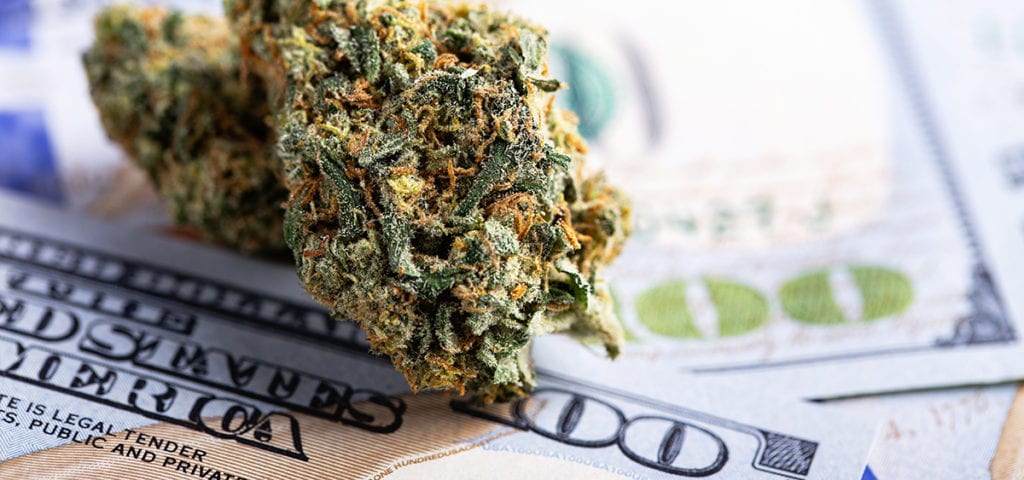The majority of Massachusetts’ cannabis-derived tax revenue, $53.8 million out of $78.8 million, was allocated to the state’s Division of Alcoholism Administration.
Massachusetts Division of Alcoholism Administration Funded By Cannabis Taxes

medical marijuana, cannabis bud with one hundred dollars banknotes macro
Full story continued below.
Advertisement
The majority of cannabis-derived state excise taxes in Massachusetts – $53.8 million of the $78.8 million spent through July – has been allocated to the state Division of Alcoholism Administration, while another $20.7 million was used to pay for the Cannabis Control Commission, according to state figures outlined by the Boston Business Journal.
Under the state’s recreational cannabis law, the Legislature can allocate cannabis excise taxes to public and behavioral health – part of the duties performed by the Alcoholism Administration – public safety, and municipal police training. In all, the state has taken in $65.63 million in excise taxes since fiscal year 2019.
The $38.16 million in cannabis-derived sales taxes is earmarked for the state’s General, Massachusetts Bay Transit Authority, and School Building Authority funds. In 2019, the state saw $8.11 million in cannabis sales taxes and $30.05 million in fiscal year 2020, which ended last month.
The local option tax – imposed by municipalities up to 3 percent – has totaled $18.28 million since 2019 but there is no state tracking of these funds; however, a review by the journal suggests the cities and towns are sent to their General Funds. The controversial “community impact fee” – which can be as much as 3 percent and is collected from operators – is not included in sales tax revenues.
Northampton – one of the first towns to allow recreational sales in the state – reported $2.6 million in community impact fees which was used for infrastructure upgrades, including roads, sidewalks, parking, and crosswalks.
Since the market’s launch, Massachusetts has collected $122 million in tax revenues from legal cannabis sales.
Get daily news insights in your inbox. Subscribe
End
